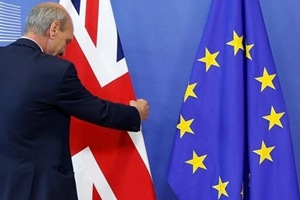British voters shocked the world by deciding to exit Europe. Though I did not expect the final verdict to swing towards Brexit, but we are not surprised as to why it happened. Outgoing British Prime Minister made a grave error of judgement. He failed to understand the anger amongst masses. We can call this as a class war, the one between haves and have-nots. Post 2007, the series of debt crises around the globe is causing significant socio-political realignment. To understand this process we need to look into history for answers. Over the last 3 decades globalisation and financialisation has worked hand in hand. These two forces have brought more and more people from obscure parts of the world into global trade, by providing access to cheap capital, market and labour. Financialisation ensured ease in debt creation. Wall Street showed the way to Main Street various innovative ways of levering up the economy. Debt allowed masses to borrow from their future self and afford a standard of living that they aspired for. Debt in a way worked as a great leveller between the have and the have not. It worked like magic as politicians realised the virtues of a debt driven investment and consumption. The elite’s bank rolled them and the happy aspiring masses voted them to power. It worked so well for two decades and then came global financial crises or global debt crises beginning 2007.
2007 global financial crises was a trigger to the economic adjustment that is still ongoing. I have written about it at length previously so in this piece I would not spend too much into the savings investment rebalancing angle but would rather focus on its impact on causing disillusionment amongst the masses. Peak of major debt cycles have occurred many times in history. In 1930s it had occurred with similar socio-political impact. The debt crises most affected the masses, as they were the ones holding bulk of the debt commitments and little real assets. The elite were asset rich and debt light. The collapse in global stock market as well as property market though had significant adverse impact on these elites, but the effect did not last long. Central bankers around the globe stepped in and used their power to debase money to support stocks and property prices. The resultant impact was a rapid recovery in global asset prices which disproportionately benefitted the rich. Unlike financial markets, which have become policy controlled and hence float higher thanks to fuel of cheap money, economic cycle has been slow to mend and has become crises prone. High debt continues to pull down economic growth and would continue to do so as long as debt reduction does not happen. As a result of weak growth, the job market has seen a downshift both in terms of quantity as well as quality of pay. Add to this mix the fast paced adoption of technology which is causing displacement, it is no surprise that a chunk of the population feels left out.
[related-post]
Inequality has risen around the globe and policymakers have inadvertently amplified it through their good intention to create wealth effect. The rising discontent amongst masses have caused political changes which have continuously shocked the people who held the status quo dear to them. We are seeing world over polarisation in society leading to rise of far right and ultra left. Populations are willing to experiment with such radical elements as they feel the status quo politicians and bankers have left them out in the cold. We had seen similar political realignment during 1930s, when the world had high levels of debt containing growth.
Martin Feldstein, Professor of Economics at Harvard University, wrote in Project Syndicate, “ The European Union began as an agreement among six countries to achieve free trade in goods and capital and to eliminate barriers to labor mobility. Jean Monnet’s dream of a United States of Europe was not what the British wanted when they joined the EU 40 years ago. Nor were they seeking a European counterweight to the United States, as Konrad Adenauer, Germany’s first post-war chancellor, had once advocated. Britain simply wanted the advantages of increased trade and labor-market integration with countries across the English Channel.”(https://www.project-syndicate.org/commentary/europe-overreach-drove-britain-out-by-martin-feldstein-2016-06).
This aptly describes the British position on EU Project. European Union was a post-World War 2 construct, in a way to stop the centuries of conflict between the major European powers British, French, Germans and the Neds. No better way to unite than to make these economies inter-connected and inter-dependent through a common market architecture. Post world war II, globalisation coupled with major reconstruction boom allowed for European economies to see significant virtue in deeper integration. The ever increasing economic pie which got even bigger after the cold war ended, ensured that the previously enemies were now sitting across the table holding hands and talking about an United States of Europe. The bonhomie suffered setback when the long term global debt cycle peaked in 2007-08, the following debt crises and economic hardship, historical mistrust and incongruences are now coming out in the open.
Brexit can be seen as an event that gives a little more impetus to the unwinding of the European project, but that does not mean it is an immediate threat. I see it as more a long term process. Over the next 12 months, we need to keep an eye on the countries who are part of the Euro zone, sharing the Euro currency ,namely, France, Germany, Italy, Netherlands and Spain. If one or more of these countries make attempts at deserting the Euro, then we can see cataclysmic impact on financial markets and the global economy. Therefore, Brexit to me is not an event which can be characterised as a Black Swan outcome.
